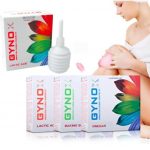Drugs That Can Cause Vaginal Dryness

Vaginal dryness is a medical condition characterized by a lack of natural lubrication and moisture in the vaginal canal. It is often associated with a range of discomforting symptoms, predominantly affecting women, though it can occur at any age. This condition is typically more prevalent during and after menopause but can also result from various other factors, including hormonal changes, medications, or certain medical conditions.
One of the primary symptoms of vaginal dryness is dryness itself. The vaginal tissues become less moist, leading to a parched and uncomfortable sensation. Women with this condition may experience itching, burning, or a general discomfort in the vaginal area. These sensations can intensify during sexual intercourse, making it painful or even impossible. Additionally, vaginal dryness can contribute to an increased susceptibility to urinary tract infections (UTIs) due to the decreased natural lubrication, which can affect the body’s ability to flush out bacteria from the urinary tract.
In some cases, women may also notice changes in the appearance of their vaginal tissues, such as thinning or inflammation. These physical alterations can further contribute to discomfort. Emotional factors, such as stress or anxiety, can exacerbate the symptoms of vaginal dryness. It’s important to remember that while vaginal dryness is common, it should not be ignored, as it can significantly impact a woman’s quality of life and sexual well-being.
While it is often associated with menopause, it can also be a side effect of certain medications. Understanding which drugs can potentially lead to vaginal dryness is essential for managing this condition effectively. In this article, we will explore various medications that may contribute to vaginal dryness and offer insights into how to address this issue.
Drugs That Can Cause Vaginal Dryness
The following drugs can cause vaginal dryness:
1. Antihistamines: Antihistamines are commonly used to relieve allergy symptoms like sneezing and runny nose. Unfortunately, they can also have a drying effect on mucous membranes throughout the body, including the vaginal tissues. Over-the-counter antihistamines like diphenhydramine (Benadryl) and prescription medications such as cetirizine (Zyrtec) can sometimes lead to reduced vaginal lubrication.
2. Decongestants: Decongestants, often found in cold and flu medications, work by narrowing blood vessels in the nasal passages to alleviate congestion. While they can be effective for cold symptoms, decongestants like pseudoephedrine (Sudafed) can also lead to decreased moisture in vaginal tissues.
3. Hormonal Birth Control: Certain forms of hormonal birth control, such as birth control pills, patches, and injections, can affect hormone levels in the body. These hormonal changes may lead to vaginal dryness as a side effect. It’s important to note that not all women using hormonal birth control will experience this symptom.
4. Antidepressants: Some antidepressant medications, particularly selective serotonin reuptake inhibitors (SSRIs) like fluoxetine (Prozac) and sertraline (Zoloft), may cause vaginal dryness in some women. The exact mechanism behind this side effect is not fully understood but may be related to how these drugs influence serotonin levels in the body.
5. Anti-Anxiety Medications: Similar to antidepressants, certain anti-anxiety medications like benzodiazepines can potentially contribute to vaginal dryness. These drugs, including diazepam (Valium) and lorazepam (Ativan), can affect the body’s ability to produce natural lubrication.
6. Breast Cancer Treatments: Chemotherapy and hormone therapy used in the treatment of breast cancer can lead to hormonal changes that affect vaginal moisture. Estrogen-blocking therapies, in particular, can result in significant vaginal dryness.
7. Immunosuppressants: Patients taking immunosuppressant medications, often prescribed to suppress the immune system in cases of organ transplantation or autoimmune diseases, may experience vaginal dryness as a side effect.
It’s crucial to emphasize that not everyone who takes these medications will experience vaginal dryness. The severity of the symptom can vary from person to person.
Can illicit drugs cause vaginal dryness?
Yes, the use of illicit drugs can potentially lead to vaginal dryness as a side effect or indirect consequence. Illicit drugs can have a range of negative effects on the body, including disrupting hormonal balance and impairing various physiological functions. Here are some ways in which illicit drug use can contribute to vaginal dryness:
1. Hormonal Imbalance: Many illicit drugs can disrupt the body’s hormonal balance. For example, substances like cocaine and amphetamines can lead to increased stress hormone production, which may affect the normal hormonal regulation of vaginal moisture. These hormonal fluctuations can result in dryness and discomfort.
2. Dehydration: Illicit drugs often have dehydrating effects on the body. Dehydration can reduce overall bodily fluid levels, including the natural lubrication of the vagina. When the body is dehydrated, it may produce less vaginal moisture, leading to dryness.
3. Vasoconstriction: Some drugs, such as stimulants like cocaine or methamphetamine, can cause vasoconstriction, which is the narrowing of blood vessels. This constriction can reduce blood flow to the genital area, potentially affecting vaginal lubrication.
4. Nervous System Impact: Illicit drugs can impact the nervous system, leading to changes in sexual function and sensation. These changes can influence sexual arousal and lubrication.
5. Poor Health Habits: Individuals who use illicit drugs may be more likely to engage in risky behaviors, neglect self-care, or have poor overall health. These factors can contribute to vaginal dryness indirectly by affecting general health and well-being.
It’s important to note that the effects of illicit drugs on vaginal dryness can vary widely depending on the specific drug, its frequency and duration of use, individual differences in response, and other factors. Moreover, the use of illicit drugs can have serious health consequences beyond vaginal dryness, and it is generally discouraged due to its legal and health risks.
If you are experiencing vaginal dryness or any other concerning symptoms related to drug use, it is advisable to seek medical attention and support for substance abuse. A healthcare provider can offer guidance on addressing both the immediate symptoms and any underlying issues associated with drug use. Additionally, discussing your drug use openly with a healthcare provider is essential for obtaining appropriate care and addressing potential health concerns.
What to do if you suspect that a medication you are taking is causing vaginal dryness
If you suspect that a medication you are taking is causing vaginal dryness or making the condition worse, it’s essential to take the following steps:
1. Consult Your Healthcare Provider: The first and most crucial step is to schedule an appointment with your healthcare provider, such as your primary care physician or gynecologist. They can evaluate your specific situation and discuss your symptoms and concerns in detail.
2. Provide a Medication List: Bring a list of all the medications you are currently taking, including prescription drugs, over-the-counter medications, supplements, and herbal remedies. This comprehensive list will help your healthcare provider identify potential culprits contributing to vaginal dryness.
3. Discuss Symptoms: Describe your symptoms in detail. Be honest and open about any discomfort, pain, or changes you’ve noticed in your vaginal health. Providing specific information can help your healthcare provider make an accurate diagnosis.
4. Explore Alternatives: Your healthcare provider will assess whether the medication you suspect is causing vaginal dryness is essential for your overall health. If an alternative medication with fewer side effects is available, they may consider switching you to a different treatment option.
5. Adjust Medication Dosage: In some cases, adjusting the dosage of the medication causing vaginal dryness might help alleviate the side effect. Your healthcare provider can guide you through this process.
6. Consider Complementary Therapies: Depending on your situation, your healthcare provider may recommend complementary therapies, such as using herbs, vaginal moisturizers or lubricants, to manage the symptoms of vaginal dryness. They can suggest specific products that are safe and effective.
7. Monitor Symptoms: After making any necessary changes to your medication or treatment plan, it’s essential to monitor your symptoms and report back to your healthcare provider. This feedback will help ensure that the adjustments are working as intended and that your vaginal health is improving.
8. Practice Self-Care: In addition to medical interventions, practicing self-care can help manage vaginal dryness. Staying hydrated, avoiding irritants like perfumed soaps or douches, and managing stress through relaxation techniques can all contribute to better vaginal health.
Remember that each individual’s situation is unique, and the approach to managing medication-related vaginal dryness may vary. It’s crucial to maintain open communication with your healthcare provider throughout the process to ensure the best possible outcome for your vaginal health while managing any underlying medical conditions.





